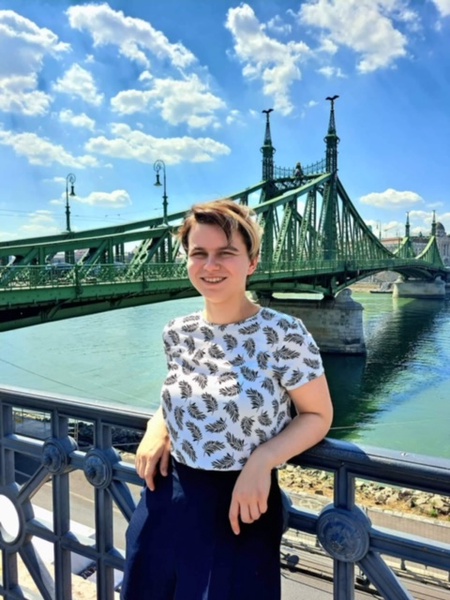My name is Barbora, and I am a MA Psychology student particularly interested in social psychology, stereotyping and gender issues as well as other assorted unrelated subject areas like latin and coding. Outside of academia, I read urban fantasy, embroider (badly), and write fiction (these are usually even worse than my embroidery). In the summer between my second and third year, I had the opportunity to complete an internship about neurodiversity-related inclusiveness in Higher Education, under the supervision of Dr Madge Jackson.
I applied for the ‘Fostering neuroinclusivity in Higher Education’ internship as I am generally very interested in diversity and inclusion topics (I am on daily basis very deeply annoyed on how unfair the world is). I believe neurodiversity and related inclusive practises are an area that deserves more attention. Neurodivergence is invisible and as such, neurodivergent people might often encounter a lack of understanding from their environment. This is because, at a first glance, there is nothing preventing neurodivergent people to function ‘normally' — or in a way a neurotypical person would see as normal. University environments, which are traditionally characterised by a high demand on reading and writing, multitasking, and keeping to strict deadlines, can therefore cause considerable difficulties for neurodivergent people. Yet, neurodiversity is often still only a footnote within diversity initiatives.
My internship comprised of (1) a literature search and (2) an exploration of neuroinclusive practises of other UK universities. Firstly, I collected a library of academic papers related to the topic of neurodiversity in higher education and summarised my findings in a report. Second, I had a look at various practices related to neuroinclusion of thirty-eight UK universities. The aim of this exercise was to gain an understanding of what other institutions are doing, neurodiversity-wise. The overarching goal of my project was to provide a comprehensible overview of the barriers that neurodivergent people face in higher education, as well as helpful neuroinclusive practises. It is likely that inclusion as related to neurodiversity is, similarly to other inclusion issues, a process that will never be fully finished— which is the reason why it is important to raise awareness, constantly reflect on what has been done and what could be done next, and show compassion whenever it is even the slightest bit possible (which is always).
It is my hope that these resources will support our aim to have a neuroinclusive environment in the School of Psychology and more broadly across the University of Aberdeen. Personally, I have gained a deeper and more nuanced understanding of various barriers to inclusion in higher education, which has only served to fuel my wish to do something about it. The internship has also given me a deeper insight into academic research and has further supported my interest in research as a possible career path. Lastly, I have also met a lot of amazing people enthusiastic about their work as well as diversity issues. Although the task of making the world less unfair is large and daunting, they give me the strength to keep fighting.
Barbora is studying for an MA in Psychology and is currently in their third year of studies.


